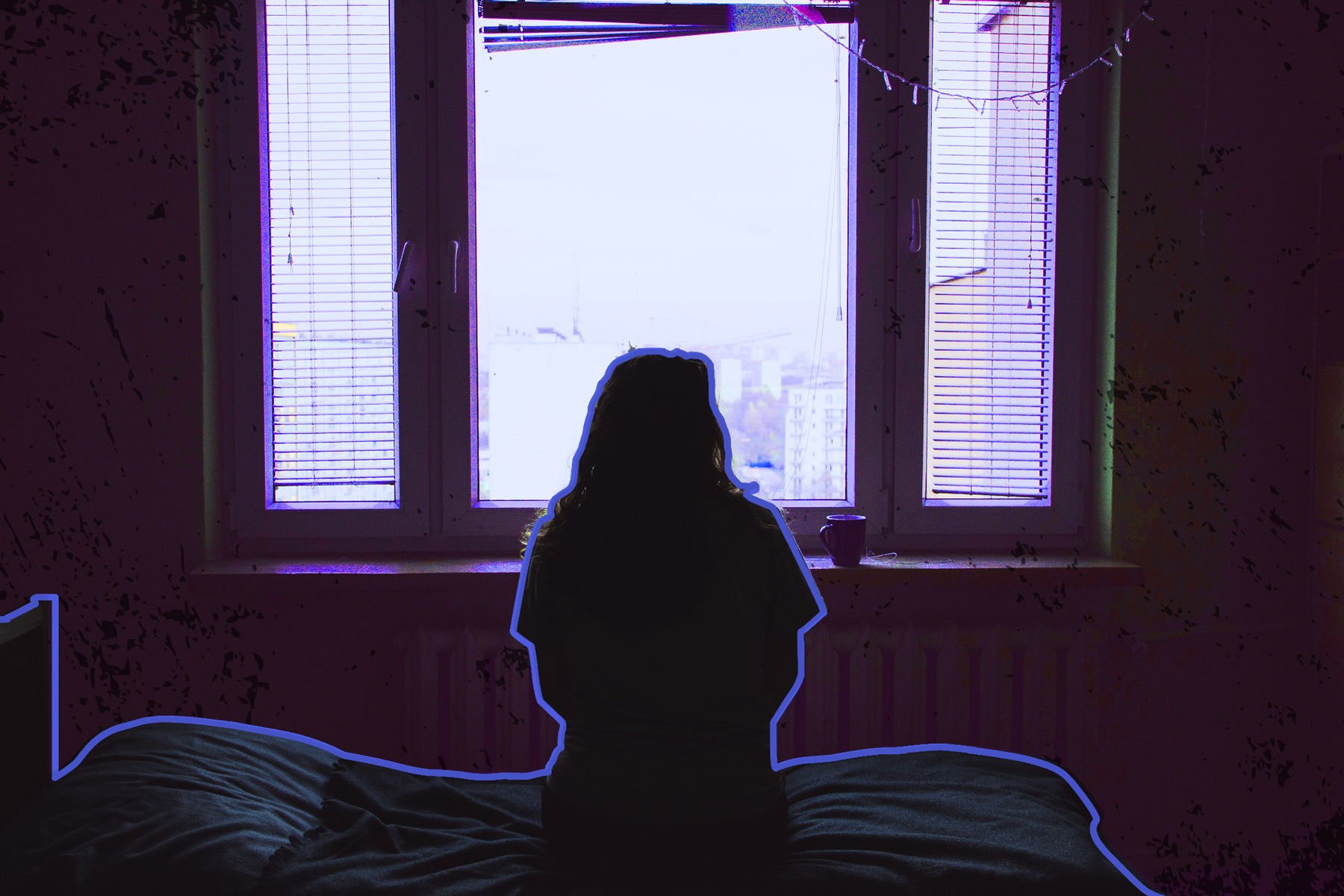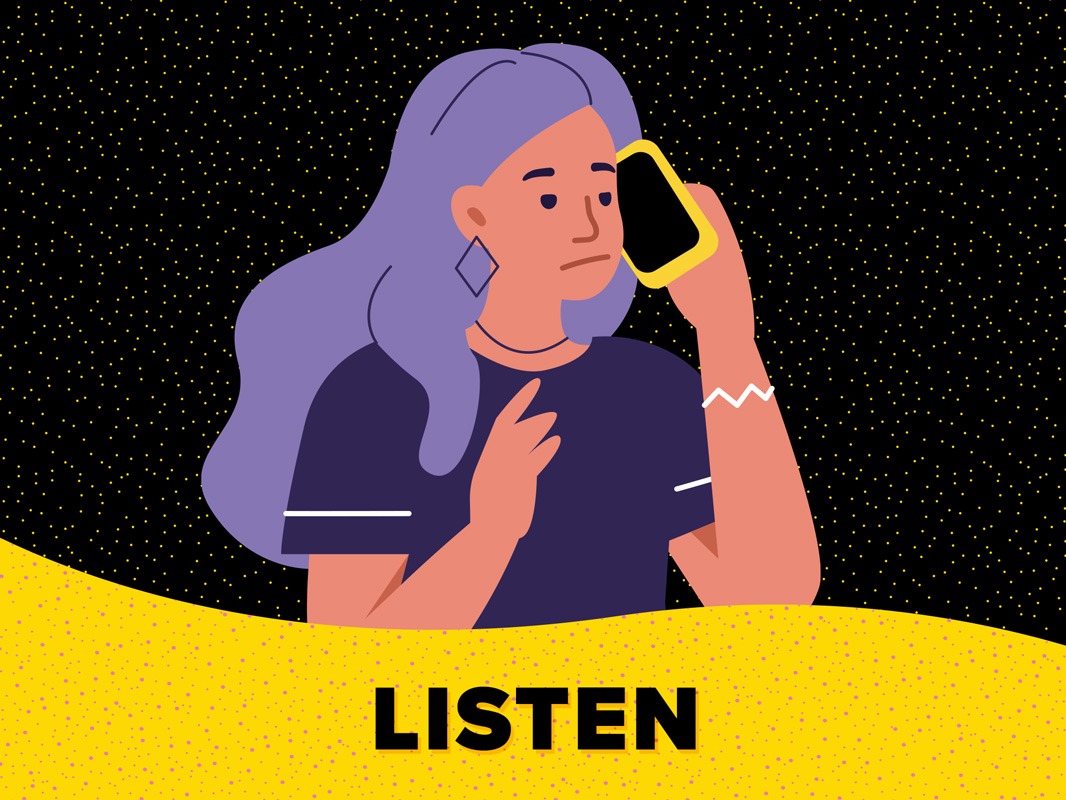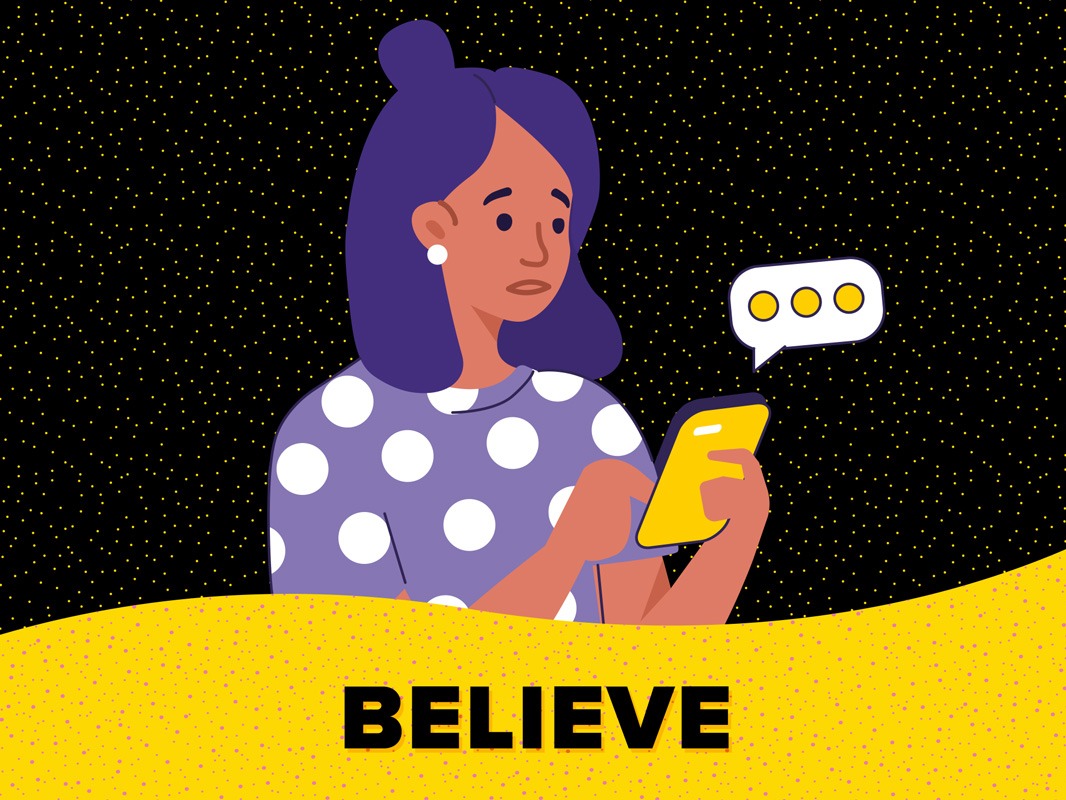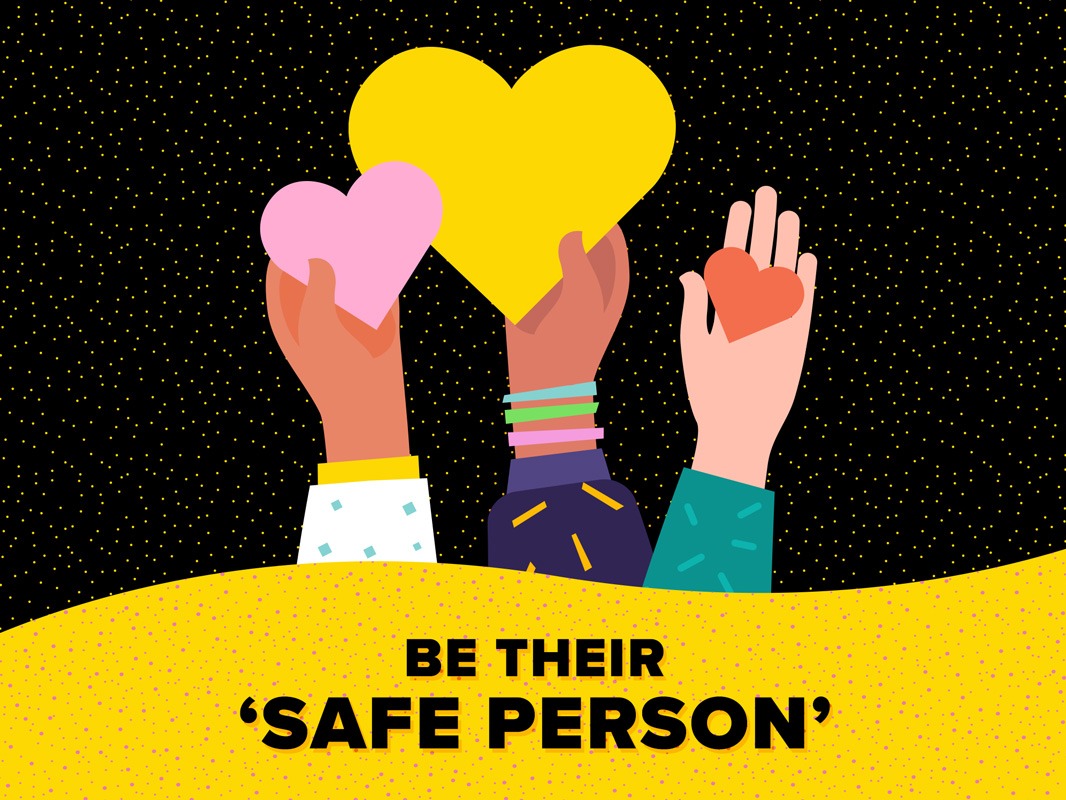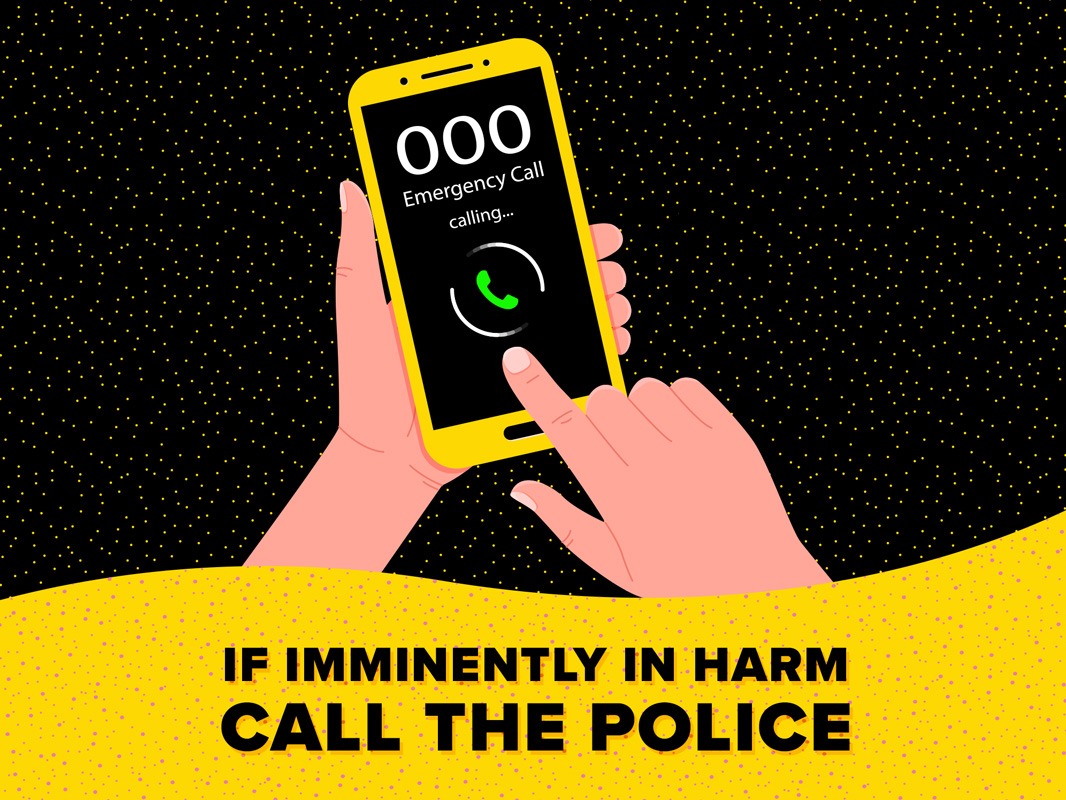Mamamia has launched a new campaign called #ItWasInvisible to shine a light on the unseen stories and signs of financial abuse, along with finance and community partners.
This article contains references to domestic abuse and may be triggering for some readers. If you or someone you know is affected by domestic violence, please call 1800 RESPECT (1800 737 732).
The feature image used is a stock photo.
Domestic violence and COVID-19
In residences all over the country, the incremental nationwide lockdown marked the beginning of a spike in domestic and family violence (DFV). It’s what Amanda Taub, writing for the New York Times, describes as “an opportunistic infection,” thriving in the unique environment created by a global pandemic.
By late March, a report from Women’s Safety NSW showed a dramatic increase in both the demand and complexity of DFV cases. More than 40 per cent of frontline workers said they had seen an increased demand for help since the beginning of the COVID-19 pandemic.
To experts in the field, this spike was unsurprising.
The trend had already been seen in several other parts of the world, and as Renata Field, media spokesperson for Domestic Violence New South Wales (DVNSW), told Mamamia, domestic violence tends to go up whenever people are spending more time at home together - Christmas, Easter, school holidays.
Add to that the pressures of people losing jobs and financial concerns, she said, and you have a “melting pot, where people are at significant risk of domestic violence”.
Field explained that recently in her work, she’s seen coronavirus used as a tactic by people who use violence to further abuse their partners or ex-partners.
“We’ve heard [stories of] people being unsafe in their behaviour.
“So, for example, a person who is out in the community for his work, as a truck driver, and he’s refusing to wash his hands and act safely when he gets home, and placing his partner in additional danger. But doing that purposefully so she’ll be scared that she’ll get coronavirus. In that particular situation the woman was older so she was in a vulnerable population group.”
It’s clear that when Field talks about DFV, she’s not necessarily talking about bruises and broken bones - although physical violence is a very real threat in many abusive relationships.
Instead, it might be better described as ‘intimate terrorism,’ the experience of living under coercive control at the hands of a current or former partner.
Psychological terror, caused by actions like isolating a person from their family and friends, threatening to estrange them from their children, limiting their spending or implementing strict rules for how they must behave, is a way for abusers to restrict the freedoms of their victim without leaving marks behind. To those on the outside, these types of abuse might be invisible. When the community is in lockdown, they’re even harder to identify.
Financial abuse
The economic impact of the coronavirus pandemic has been globally devastating, and factors like job insecurity and financial instability pose a specific risk for a less well-known form of DFV - financial abuse.
“We know financial abuse occurs in the vast majority of abusive relationships,” Moo Baulch, Head of Customer Vulnerability at Commonwealth Bank, told Mamamia.
Approximately one in four women and one in thirteen men in Australia have experienced violence by an intimate partner, and among those who seek support, up to 90 per cent are also affected by financial abuse.
According to Baulch, financial abuse can initially “come under the guise of being caring”.
“Like, ‘I know you’re not good with those sorts of things.’”
It’s also a type of coercive control that “occurs across every single demographic”.
“You could be incredibly wealthy on paper. You might have your name on a family trust, you may have three or four cars in your driveway, you might have…for all intents and purposes a large amount of money in your bank account.
“But if you don’t have access to any of that, or you don’t have any oversight of that, or control of that, then we would consider that financial abuse.”
The inherent gender inequality when it comes to money (like the gender pay gap, and the socialised expectation that men will handle finances in a relationship), means many victims of financial abuse are often unaware of what’s happening.
“When we talk about financial abuse we often think about someone coming home and taking all the money from the pay packet, and that physical thing of removing their partner’s money,” Baulch said. The reality, however, is that it’s far more complex.
“It’s also things like stopping [a person] accessing Centrelink benefits or childcare benefits, or refusing access to a bank account or a credit card.
“It might be coercing them to do those sorts of things against their will. And then we see this really awful, insidious stuff where that power and control is so focused that it’s… 'I want to see all your receipts for this week, I want you to keep a diary of what you’re spending money on, and you need to justify every single expense to me.' It might be stopping somebody from being able to pay bills, access to resources from the outside, like a car or money for petrol.”
Controlling the ability to leave
Money, for many of us, is a proxy for freedom. And using it as a tool of abuse can have a very real impact on a person’s capacity to leave a dangerous situation.
“For a lot of women, it can take many, many attempts before they can successfully leave. And often that will be because of finances,” explained Baulch.
“Often people will be trapped in a situation until they can come up with a safety plan in terms of being financially stable and independent and being able to rent or pay a mortgage.
“Using finances as something to keep somebody in a relationship is a very common technique. Particularly when there is a financial imbalance in the relationship to start with.”
“We know that it’s not easy to leave an abusive relationship, particularly if you’re experiencing financial abuse. But there is help available and the first step is reaching out for that help.
“There are several not-for-profit services that are available that can help someone who has been impacted by financial abuse. It may also be helpful to contact your bank to see if they can assist you with immediate management of your account(s), loans and other financial services such as insurance, superannuation. If you're a CommBank customer experiencing a domestic or family violence situation, you can speak to our specialist Community Wellbeing team about your financial needs. This includes situations of financial abuse.
“It can also be helpful to engage a financial counsellor. Financial counsellors provide free, independent and confidential information, support and advocacy to assist people who are experiencing financial difficulty.”
Field told Mamamia about her experience with a woman who came to seek help, and “didn’t have access to any of the bank accounts her partner had set up.
“This is very common that people will be given a certain amount of money each week to spend, and that’s not sufficient to actually leave the situation. It’s sufficient to maybe buy groceries for the week, but it’s not sufficient to get a hotel room or get extra petrol to leave the area.
“This particular person, when she left and tried to sort out her finances, she found that there were a large number of loans in her name that her partner had said just, ‘sign this’ and she never knew exactly what it was.”
The woman eventually discovered she had eight different loans in her name, equating to more than a million dollars.
“After she’d left, she was in a much more challenging position than she had been before,” Field said. And that’s how abusers get their victims to stay.
Of course, this psychological manipulation can’t be seen from the outside, but that doesn’t take away its power.
Help during isolation
“The lockdown is a particularly dangerous time for people experiencing domestic and family violence because social isolation is a tool that people who use violence use to harm their victim,” Field told Mamamia. “So if there is an enforced social isolation by the state, then those people are going to be more isolated, and it will be even more challenging for them to reach out for support.
“For a lot of people who are experiencing violence - work or school or regular contact with social groups is a really important way for them to find safety in social contact.
“[Right now] it’s hard to find the time and the privacy to reach out for help. People have kids on their hands 24/7, and if you’re in the same house as someone who’s using violence against you, it’s really challenging at the best of times, but now there’s no space or privacy to make a call.”
In terms of being able to seek help, Field is particularly worried about victims who may be in already marginalised groups.
“So for example people who don’t speak English as a first language, culturally and linguistically diverse [people]. We worry about older people who might not have good internet access and access to support.
“We worry about people who can't drive, because people don’t want to be catching taxis or public transport, so if you can’t drive at this time your options really are limited.
“And there are also significant concerns for people in regional and remote areas because there are already limited services, and a lot of those services are available on phone or internet, but the internet connection may not be very good.”
Particularly at this time, it's crucial for us to look out for the safety and well being of our loved ones.
According to Field, the two most important things we can do if we suspect someone in our lives is experiencing abuse, is to listen and believe.
"If somebody is in immediate risk, then always call the police," she said. "We know that people do die - one woman a week dies, and one child a fortnight - so domestic and family violence is a risk, and it’s important if you think someone is imminently at harm, then to call the police."
But listening and believing - and being a safe person to come to - is one of the most valuable roles we can play in helping victims.
"Never pressure someone to do what you think they need to do," Field said. "Because in the end a person who’s experiencing violence always knows their risk."
If you want more information about how to be a better support person, 1800 RESPECT (1800 737 732) is also available to speak to people seeking advice about how to help.
Right now, it’s crucial to be aware while we’re being urged to ‘physically’ distance, we shouldn’t be socially or emotionally distancing ourselves from our loved ones. We need to check in on friends, family members, and workmates, and give them the space to talk to us if they need to.
Pick up the phone. Jump on FaceTime. Send a message.
Because abuse thrives in isolation, and it’s only by listening and believing, that we can help make the invisible reality of intimate terrorism, visible.
If you or someone you know is affected by domestic violence, please call 1800 RESPECT (1800 737 732). In an emergency, call 000.
Instances of domestic and family violence often increase in times of disaster. The coronavirus pandemic is proving to be no exception, with financial abuse also likely to increase. If you’re looking for helpful information about financial abuse, pathways to support, and useful suggestions about staying safe and staying connected during these uncertain times, CommBank has produced this helpful guide.
